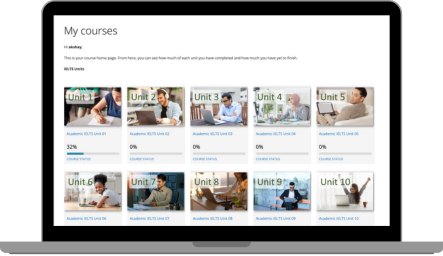Table of Contents
- 1. What does IELTS stand for?
- 2. What is the IELTS exam? – Something About The Purpose
- 3. What is the IELTS Test Format?
What does IELTS stand for?
If you want to study, work, or immigrate to a country where English is not the local language, you may need to take the International English Language Testing System (IELTS) exam. A candidate’s proficiency in reading, writing, listening, and speaking English is graded on a scale from 1 to 9 by the International English Language Testing System (IELTS). The exam is owned by the British Council, IDP: IELTS Australia, and Cambridge English.
What is the IELTS exam? – Something About The Purpose
Both an Academic and a General Training version of the IELTS exam are available. Students who prefer to learn in an English-speaking setting fall into the first group.
Put another way, it’s a good fit for potential employees who want to further their education. This exam can also be used for licensing purposes. It’s a measure of your readiness to start classes where English is used as the medium of teaching.
In contrast, the IELTS General Training test is appropriate for those who intend to pursue undergraduate or graduate-level coursework. It features a school where English is the official language. This criterion is equally applicable to employment-related training and job experience. If you want to move to the United States, Australia, Canada, the United Kingdom, or New Zealand, you need to take the IELTS General Training exam.
What is the IELTS Test Format?
While the listening, reading, and writing sections take place on the same day with no breaks, the speaking section can happen before or after a week of the other tests. The total duration is 2 hours and 45 minutes. You can understand your progress before taking the test with an official IELTS practice test. It indicates your band score and also gives feedback on areas of improvement.
- Listening
You will listen to four recordings of fluent English speakers and then answer questions depending on what you hear. Conversation between two people in a typical social setting will be the topic of the first tape. The second recording will be a one-person show that takes place in a realistic social setting.
The third recording will contain a conversation between two to four people in a training or educational setting, and the final recording will be a one-person monologue on a scholarly topic designed to test your ability to understand and respond to it. The listening section of the exam is meant to gauge your ability to pick up on key concepts and specifics.
- Speaking
This section tests how you speak English based on general questions about yourself and familiar subjects like home, work, family, interests, and studies. The duration of part 1 is four to five minutes. In part 2, you will be given a card asking you to speak on a specific topic for two minutes. Then, the examiner will ask one or two questions on this topic. In the last part of the test, you will be asked more questions based on the same topic. It will allow you to discuss issues and concepts for four to five minutes.
- Reading
You will be given 40 questions to assess your reading skills. It will comprise reading for main ideas, gist, detail, understanding of logical arguments, and recognizing writers’ purposes and attitudes. Three long texts are lifted from books, newspapers, journals, and magazines for a non-specialist audience but apply to candidates seeking professional registration or entering a university course or materials you will come across in an English-speaking environment.
- Writing
The academic writing section tests you on topics of general interest for candidates entering undergraduate and postgraduate studies or seeking professional registration. It consists of two tasks that allow you to describe a given graph, chart, diagram, or table in general writing task 1 and write an essay on an argument for IELTS task 2.
Thousands of reputable universities accept IELTS results as parameters of English language proficiency. Even today, the IELTS test continues to set the pattern for English language tests.









